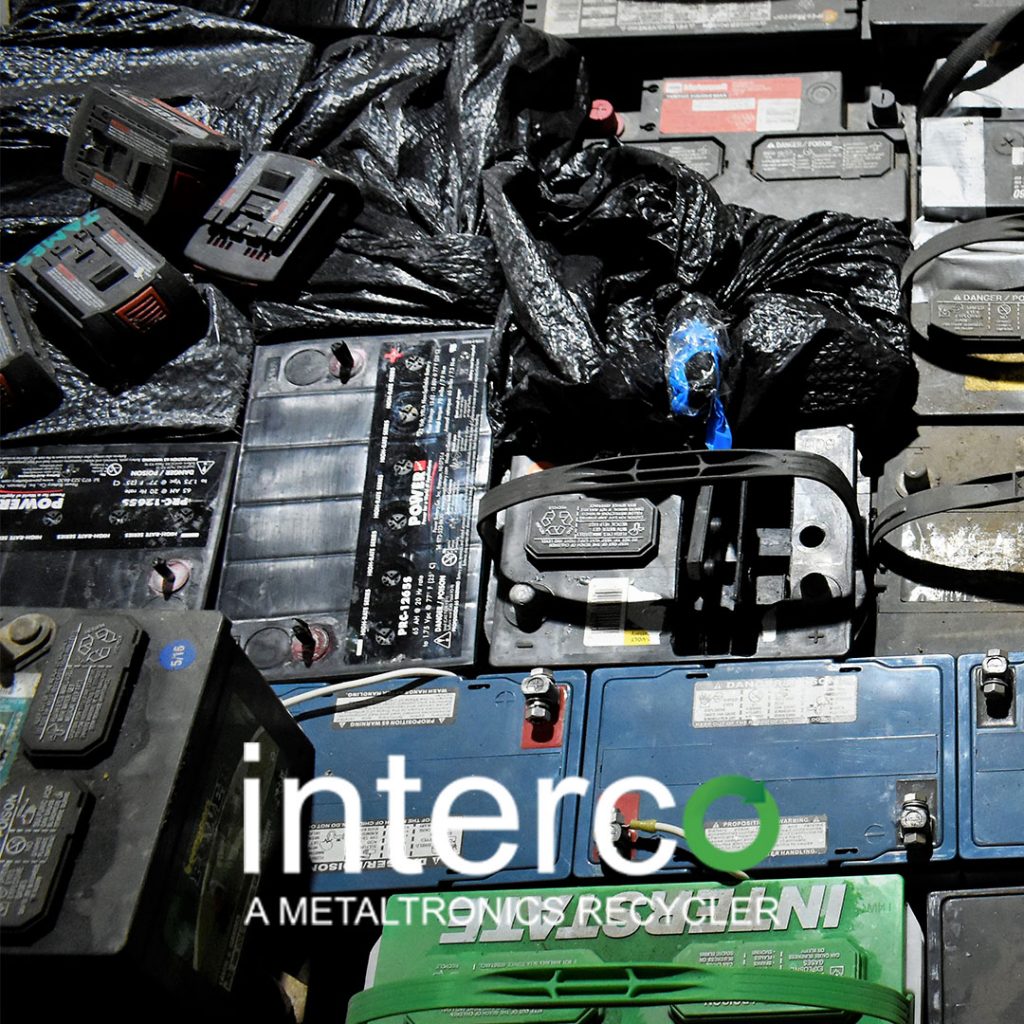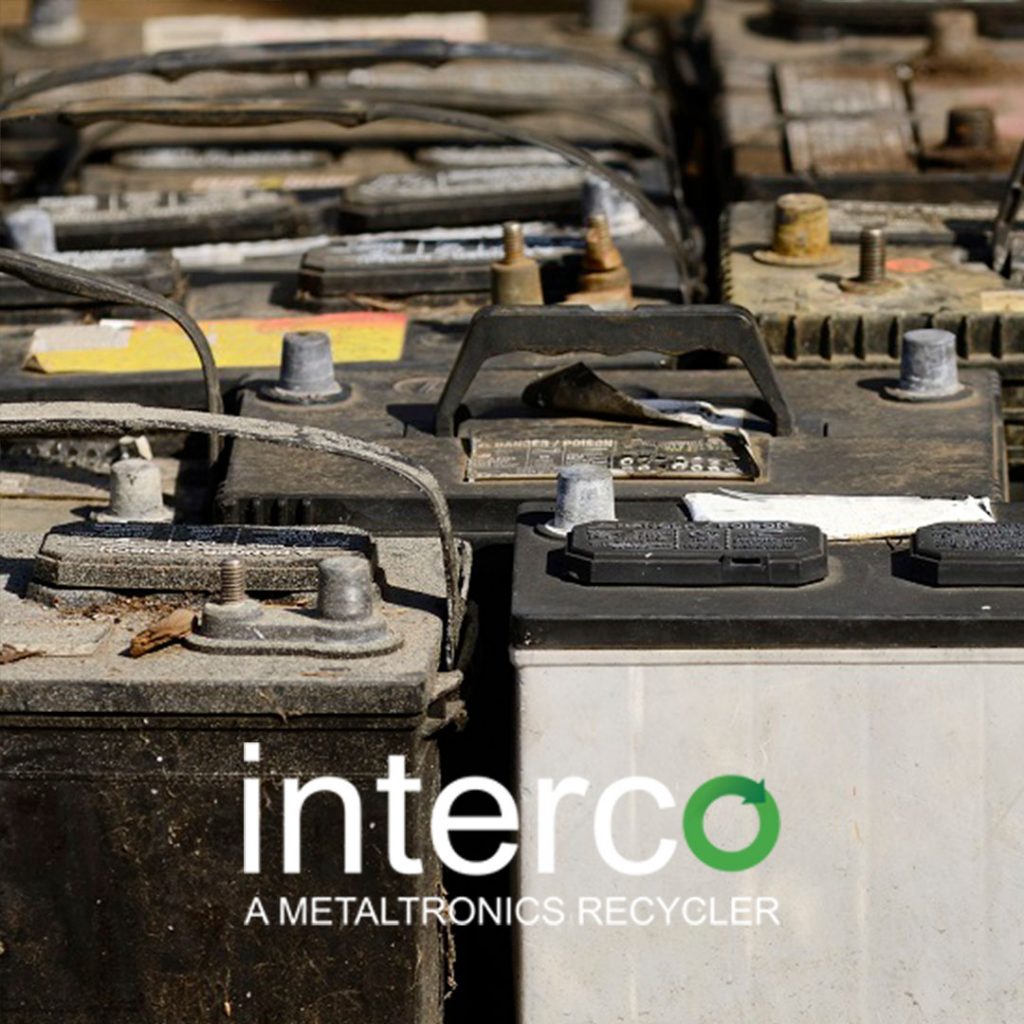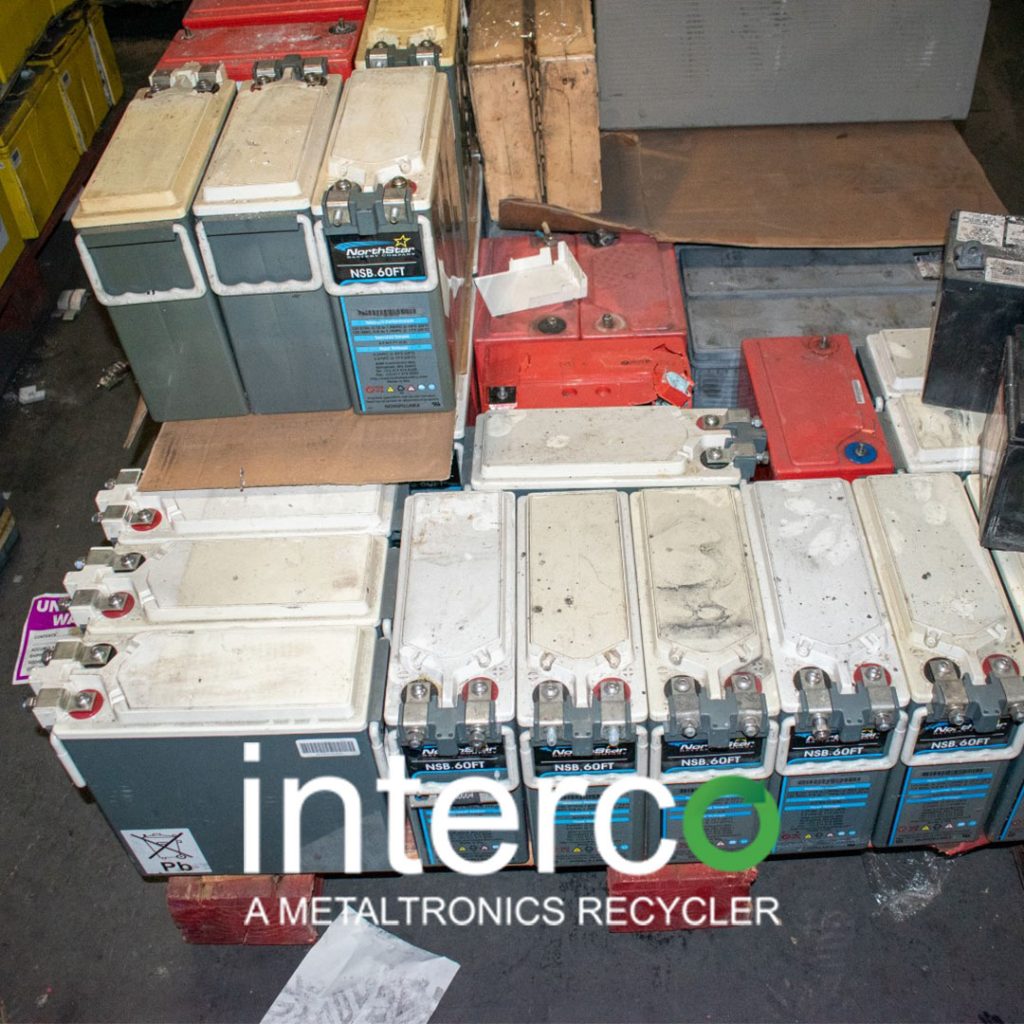Where to Sell Scrap Lead-Acid Batteries

Where to Sell Scrap Lead-Acid Batteries
Did you know car batteries, and any other type of large lead-acid battery, cannot go in household trash or recycling? In fact, lead-acid batteries are banned from landfills and incinerators in every state because of their toxicity levels.
Scrap lead-acid batteries contain large amounts of lead and an acid-based solution that allows electricity flow in motorized vehicles. The outer casings of scrap car batteries are made out of hard plastic and the inside is lead and lead-acid solution.
Once understanding the high acid content, it is highly advisable not to try recycling lead-acid batteries by yourself. Thus, people and companies can look to Interco to sell scrap lead-acid batteries for recycling purposes.
Lead-acid batteries become out of date after three to five years of use.
Most of those who have a surplus of scrap lead-acid batteries are unaware of the materials recycling potential. Therefore, the process of recycling used lead-acid auto batteries should be done carefully and with all safety precautions, preferably in a controlled environment far from residential areas.

How to Sell Scrap Lead-Acid Batteries
As a small business, you can make money by collecting and supplying recycling companies like Interco with used lead-acid batteries. Eventually, these batteries reach end-of-life status or become obsolete therefore need to be disposed of.
Once companies sell scrap lead-acid batteries, Interco begins the recycling process by working with machines that shred the whole batteries and sort the plastic and lead.
There are two types of lead-acid batteries: starting batteries and deep-cycle batteries.
- A starting battery quickly delivers a large burst of power to help an engine start.
- A deep-cycle battery delivers a continuous low level of power to help an engine keep operating.
Then they separate and clean the different materials while and drain and neutralize the acid. Therefore, the process reintroduces the lead as an industrial material for commercial production.
The plastic in lead-acid batteries is mostly polypropylene, which has a high heat tolerance. It can enter the recycling process. Furthermore, the lead in the batteries is sold to companies that make new batteries. In fact, the EPA estimates that up to 80% of the plastic and lead in any new battery you purchase is recycled.
Battery manufacturers produce various types of batteries in use today. Different recycling processes are available for each to recover and recycle the materials. Depending on the content – whether it’s metallic, plastic, or chemical – recycling at different stages of the production cycle often determines whether recycling is feasible or not.

What is a Lead-Acid Battery?
Consumers and businesses recycle lead-acid batteries more than any other batteries. Manufacturers and other industrialists use lead-acid batteries in industrial heavy equipment and forklifts. Lead-acid batteries are very reliable as a backup or auxiliary power as an uninterruptible power supply (UPS) in the following:
- Computers
- Data centers
- Telecommunication
- Hospitals
A lead-acid battery consists of a negative electrode made of spongy or porous lead. In addition, the lead is porous to facilitate the formation and dissolution of lead. The positive electrode consists of lead oxide. Both electrodes are immersed in an electrolytic solution of sulfuric acid and water.
Interco is a global recycling company providing metals, computers, and electronics recycling services to industrial, dealer, and government organizations throughout the western hemisphere. Furthermore, recycling scrap batteries allow for recyclers like Interco to collect valuable materials.
In addition, this process helps save natural resources, reduce pollution, conserve landfill space, and create jobs.
The company operates on a 400,000+ sqft. facility on more than 40 acres centrally located on the Illinois-side of St. Louis in the shadows of the Gateway Arch. The facility boasts a 145,000 sqft. processing plant dedicated to the processing of computers, electronics, and batteries with the rest of the facility used for nonferrous metals.
Sell Scrap Lead-Acid Batteries to Interco
Lead-acid battery recycling is vital. Furthermore, it allows recyclers to recover precious metals and decreases the harmful effects on the environment that improper disposal causes. Continuing, Interco starts the recycling process by working with machines that shred the whole batteries and sort the plastic and lead. Thus, the process reintroduces the lead as an industrial material for commercial production. If you have an interest in learning more about the services Interco offers, click here.